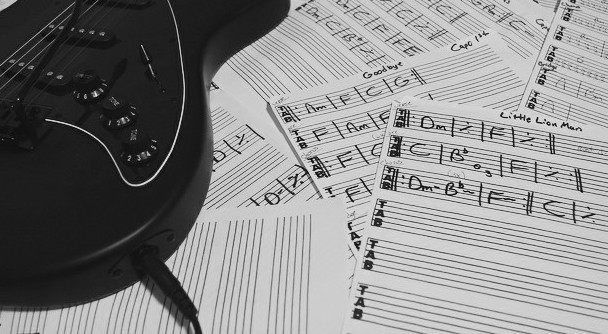
Warning: this one bad habit can become a serious drag on your desire to write songs.
This craft of songwriting calls on you to use your hands, if you play an instrument; and to use your voice, if you sing – but more importantly, it calls on you to exercise your mind. Songwriting is an art of thought.
So what do you think about while you write? At times you may find that you daydream. Maybe your thoughts drift to unfinished projects at work and home. But at some point, your thoughts return to your song in progress, and you probably comment to yourself about how it’s going.
Depending on what kind of inner commentary you engage in, this can either stunt your growth as a songwriter or it can help you grow. Let’s take a look at two types of conversation you can have with yourself about your songs.
Destructive dialogue: “This lyric is way too sappy.”
Constructive dialogue: “How can I make this lyric more gritty and believable?”
Destructive: “Why the hell can’t I sing that note?”
Constructive: “What vocal range can I sing in? Should I try this song in a lower key?”
Destructive: “This chord change is impossible.”
Constructive: “I should set aside some practice time tomorrow to work on this chord change.”
Destructive: “There’s no way I can come up with a second verse for this.”
Constructive: “How can I brainstorm more ideas for a second verse?”
Beware Destructive Dialogue!
The difference between destructive and constructive dialogue is probably pretty clear. Destructive dialogue tears you down, while constructive dialogue makes matter-of-fact observations about the song and offers specific suggestions.
Destructive dialogue passes judgment – often damning – on your work and on you as a person. Destructive dialogue doesn’t contain any useful suggestions for the song; it just judges your efforts as somehow “wrong” or “bad”. Destructive dialogue distracts you from the actual creative work, weighs you down when you’re trying to write, and slowly steals the joy out of songwriting.
Constructive dialogue actually helps you write and revise songs. Instead of putting you down, or putting the song down, it makes detailed observations. Constructive dialogue searches for ways to overcome setbacks and improve the song, or to improve your abilities. It’s like having a patient teacher inside your head, helping you overcome creative blocks and deal with the (totally inevitable) setbacks that each new song presents.
Beware: destructive dialogue comes quickly and naturally to many of us – but it’s a mean habit that can lead you astray.
To improve inner dialogue, build your skills
Sharpening your skills and brushing up your knowledge is a great way to make your inner dialogue more thoughtful and constructive.
- Music theory gives you what you need to think constructively about your melodies and chord changes, and to act on those observations.
- Knowledge of performance technique prepares you to think constructively about your singing and your instrumental performance.
- Knowledge of rhetoric and poetic techniques prepares you to have constructive inner dialogue about your lyrics, and write or revise accordingly.
Most of us already have a habit of carrying on destructive inner dialogue. Learn to recognize this distracting vice, and make an effort to replace each judgmental grumble with constructive commentary. Not only is it kinder – it’ll also help you get songs done.
photo by Emily Rachel Hildebrand, edited by this post’s author.
EDITOR’S NOTE: this post revised for clarity on April 9, 2015.